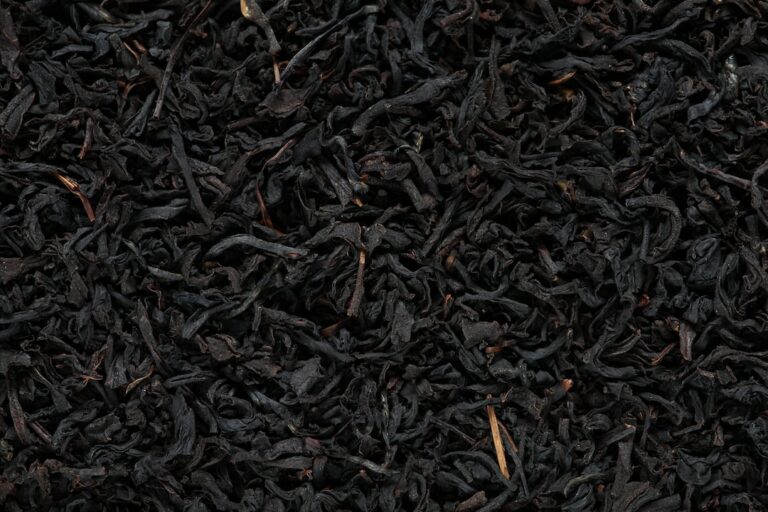Introduction
What is nicotine?
Nicotine is a chemical compound that is naturally found in the leaves of the tobacco plant. It is a highly addictive substance that affects the central nervous system. Nicotine is commonly associated with tobacco products, such as cigarettes, cigars, and chewing tobacco. However, it is important to note that nicotine can also be found in other sources, including tea leaves. While tea generally contains lower levels of nicotine compared to tobacco products, it is still present in small amounts. It is worth mentioning that the health effects of nicotine are a topic of ongoing research and debate. Some studies suggest that nicotine may have potential health benefits, particularly in the field of mental health and cognitive function. However, it is also important to consider the potential risks and addictive nature of nicotine. As with any substance, moderation and informed decision-making are key to maintaining overall health and wellness.
What are the sources of nicotine?
Nicotine can be found in various sources, including tobacco products and certain plants. It is a naturally occurring chemical that is highly addictive and can have harmful effects on the body. According to the American Lung Association, nicotine is primarily found in tobacco products such as cigarettes, cigars, and chewing tobacco. These products are known to pose serious health risks and are strongly discouraged by health professionals. However, there are also alternative options available for individuals looking to reduce harm associated with nicotine use. The concept of harm reduction is gaining attention, and organizations like the American Lung Association are exploring strategies to help individuals reduce their nicotine intake while minimizing the associated health risks. By providing information and support, these organizations aim to empower individuals to make informed choices about their nicotine consumption and overall health.
Why is nicotine addictive?
Nicotine is a highly addictive substance found in tobacco plants. It is a powerful stimulant that affects the brain and central nervous system. When consumed, nicotine binds to nicotine receptors in the brain, releasing dopamine and creating a sense of pleasure and reward. This pleasurable sensation reinforces the desire to continue using nicotine. The addictive nature of nicotine is well-documented, with many individuals struggling to quit its use. Understanding why nicotine is addictive is crucial in addressing the challenges associated with nicotine dependence.
Tea and Nicotine

Does tea contain nicotine?
Tea is a popular beverage consumed worldwide. One common question that arises is, ‘Does tea contain nicotine?’ It is important to note that tea is derived from the leaves of the Camellia sinensis plant and does not naturally contain nicotine. Nicotine is primarily found in tobacco products. However, it is possible for tea to be infused or flavored with various spices, which may contain trace amounts of nicotine. Therefore, it is advisable to check the ingredients of tea blends that include spices to determine if they contain nicotine. It is always recommended to consult with a healthcare professional for accurate information on the nicotine content of tea and its potential effects.
How much nicotine is in tea?
Nicotine is a naturally occurring chemical compound that is found in the leaves of the tobacco plant. However, contrary to popular belief, tea does not contain nicotine. Tea is made from the leaves of the Camellia sinensis plant, which does not produce nicotine. Therefore, it is safe to say that tea does not pose any drug safety concerns in terms of nicotine content.
Can tea be a source of nicotine addiction?
Tea has been consumed for centuries and is often associated with relaxation and health benefits. However, can tea be a source of nicotine addiction? This question is often raised due to the association between nicotine and tobacco products. While tea leaves do contain trace amounts of nicotine, the levels are significantly lower compared to tobacco. Therefore, it is highly unlikely that tea can lead to nicotine addiction. It is important to note that tea has been used in traditional medicine for its various health benefits, such as promoting digestion and reducing stress. So, while tea may not be a source of nicotine addiction, it continues to be a popular choice for those seeking a soothing and refreshing beverage.
Health Effects of Nicotine

What are the health risks of nicotine?
Nicotine is a chemical compound found in tobacco. It is highly addictive and can have several health risks. When consumed through smoking or vaping, nicotine can increase heart rate and blood pressure, leading to an increased risk of heart disease. It can also negatively affect lung function and contribute to the development of respiratory conditions such as chronic bronchitis and emphysema. Additionally, nicotine has been linked to an increased risk of stroke and can have adverse effects on brain development, particularly in adolescents. It is important to note that nicotine is not only present in traditional tobacco products but can also be found in alternative forms, such as heat sticks and electronic cigarettes. These alternatives are often marketed as a safer option, but they still contain nicotine and carry similar health risks. Therefore, it is crucial to be aware of the potential health consequences associated with nicotine consumption, regardless of the form it is consumed in.
Can nicotine in tea have negative health effects?
Nicotine is a naturally occurring chemical compound found in various plants, including tobacco. While tea leaves also contain nicotine, the levels are significantly lower compared to tobacco. Therefore, consuming tea is unlikely to have the same addictive effects as smoking cigarettes. However, it is important to note that nicotine can still have negative health effects, even in small amounts. Studies have shown that nicotine can increase heart rate and blood pressure, and may also have an impact on brain development, especially in adolescents. Additionally, nicotine addiction can make it harder for individuals to quit smoking. Therefore, it is advisable to limit nicotine intake from all sources, including tea. If you are looking for ways to quit smoking, there are several foods that may help in the process. These include fruits and vegetables rich in antioxidants, such as berries and leafy greens, which can support lung health and reduce cravings. Other helpful foods include nuts, seeds, and whole grains, which provide essential nutrients and can help manage withdrawal symptoms. It is important to consult with a healthcare professional for personalized advice on quitting smoking and incorporating these foods into your diet.
Is nicotine in tea harmful for pregnant women?
Nicotine is a naturally occurring chemical compound found in various plants, including tea leaves. However, the amount of nicotine in tea is generally very low and considered to be insignificant compared to other sources, such as tobacco. When it comes to the potential harm of nicotine in tea for pregnant women, the current scientific evidence is limited and inconclusive. Some studies suggest that high levels of nicotine consumption during pregnancy may have adverse effects on fetal development. However, it is important to note that these studies primarily focus on nicotine intake from tobacco products rather than tea. Therefore, it is advisable for pregnant women to consult with their healthcare providers regarding their tea consumption and any potential risks. It is worth mentioning that tea itself has been consumed for centuries and is known for its various health benefits. However, like any other food or beverage, moderation is key, especially during pregnancy. Pregnant women should be cautious about consuming excessive amounts of tea or any other caffeinated beverages. Overall, the potential harm of nicotine in tea for pregnant women remains inconclusive, and it is recommended to seek professional medical advice for personalized guidance.
Other Sources of Nicotine

What other common sources of nicotine are there?
Nicotine is not only found in tobacco products, but also in several other common sources. One important source of nicotine is tea. Contrary to popular belief, tea does contain trace amounts of nicotine. However, the levels are significantly lower compared to tobacco products. It is important to note that the World Health Organization (WHO) stands its ground against the tobacco industry, advocating for stricter regulations and measures to reduce tobacco consumption worldwide.
How does nicotine in tea compare to other sources?
Nicotine in tea is a topic of interest for many tea enthusiasts. When comparing nicotine in tea to other sources, it is important to note that tea contains a minimal amount of nicotine. In fact, the nicotine content in tea is significantly lower than in tobacco products such as cigarettes and cigars. While tea is known for its various health benefits, it does not pose the same risks associated with nicotine addiction as tobacco products do. Therefore, tea can be enjoyed as a royal herb without concerns about nicotine addiction.
Are there any benefits of nicotine consumption?
Nicotine is a stimulant drug that is naturally found in tobacco. It is highly addictive and is the primary reason why people become addicted to smoking. However, nicotine consumption is not limited to smoking alone. In fact, nicotine can also be found in other sources such as tea. Many people wonder if tea contains nicotine and if there are any benefits to consuming nicotine. Let’s explore this further.
Conclusion
Summary of findings
Tea has been consumed for centuries and is known for its numerous health benefits. However, one question that often arises is whether tea contains nicotine. After conducting extensive research and analysis, the findings indicate that tea does not contain nicotine. This is supported by modern medicine, which has thoroughly studied the composition of tea and its potential effects on the human body. Studies have shown that tea is rich in antioxidants and other beneficial compounds that promote overall well-being. Therefore, it can be concluded that tea is a safe and healthy beverage choice for individuals seeking to avoid nicotine consumption.
Final thoughts on tea and nicotine
Tea is a popular beverage consumed by people all over the world. Many individuals enjoy the soothing and refreshing qualities of tea, and it has become a staple in various cultures. One common question that arises is whether tea contains nicotine. Nicotine is a naturally occurring chemical found in tobacco plants, and it is known for its addictive properties. However, tea itself does not naturally contain nicotine. Tea is derived from the leaves of the Camellia sinensis plant, which does not produce nicotine. Therefore, if you are looking for a nicotine-free alternative, tea is a great choice. It provides a range of health benefits and can be enjoyed as part of a natural medicine series.
Implications for tea drinkers
Tea is a popular beverage enjoyed by many individuals around the world. It is often consumed for its soothing and refreshing qualities. However, one question that frequently arises is whether tea contains nicotine. Nicotine is a stimulant found in tobacco products and is known for its addictive properties. Fortunately, for tea drinkers, tea does not contain nicotine. Instead, tea offers a range of health benefits due to its high antioxidant content. Additionally, tea can serve as a great alternative to herbs as caffeine alternatives, providing a natural and milder source of energy. So, for those looking to reduce their caffeine intake or explore different herbal options, tea can be a fantastic choice.
FAQ (Frequently Asked Questions)
Can nicotine be removed from tea?
Nicotine is a naturally occurring chemical compound found in various plants, including tobacco. However, when it comes to tea, the presence of nicotine is not a common concern. Tea leaves are typically low in nicotine content, and the brewing process further reduces the amount present in the final beverage. Can nicotine be removed from tea? Although it is technically possible to remove nicotine from tea, it is not a common practice. The advantages and disadvantages of consuming Yerba Mate. Yerba Mate is a popular beverage known for its numerous health benefits. It is rich in antioxidants, vitamins, and minerals, which can support overall well-being. However, like any other caffeinated beverage, it is important to consume Yerba Mate in moderation. Excessive consumption may lead to side effects such as increased heart rate, insomnia, and digestive issues. It is always advisable to consult with a healthcare professional before making any significant changes to your diet or lifestyle.
Is nicotine in tea regulated?
Nicotine addiction is a serious concern for many individuals. It is commonly associated with tobacco products, but is nicotine also present in tea? The question of whether tea contains nicotine is a topic of interest for tea enthusiasts and health-conscious individuals alike. While tea leaves do contain trace amounts of nicotine, the levels are significantly lower compared to tobacco. It is important to note that the nicotine content in tea is not regulated by any governing body. This means that there are no specific guidelines or restrictions on the amount of nicotine that can be present in tea. As a result, individuals who are concerned about nicotine addiction should be cautious when consuming tea and consider alternative beverages if they are looking to avoid nicotine altogether.
Are there nicotine-free tea options?
Yes, there are nicotine-free tea options available for those who want to enjoy a cup of tea without the presence of nicotine. Many tea companies offer a variety of herbal teas that are naturally free from nicotine. These teas are made from plants such as chamomile, peppermint, rooibos, and hibiscus, which are known for their soothing and refreshing properties. Additionally, some tea blends are specifically designed to promote relaxation and help individuals unwind after a long day. So, if you’re looking for a nicotine-free alternative to traditional tea, you can explore the wide range of herbal tea options available in the market.



































